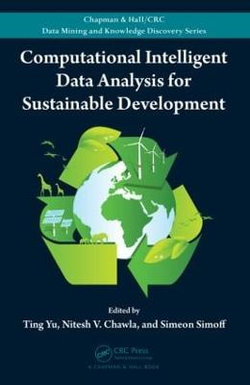With a focus on integrated sustainability analysis, the book presents a large-scale quadratic programming algorithm to expand high-resolution input-output tables from the national scale to the multinational scale to measure the carbon footprint of the entire trade supply chain. It also quantifies the error or dispersion between different reclassification and aggregation schemas, revealing that aggregation errors have a high concentration over specific regions and sectors.
The book summarizes the latest contributions of the data analysis community to climate change research. A profuse amount of climate data of various types is available, providing a rich and fertile playground for future data mining and machine learning research. The book also pays special attention to several critical challenges in the science of climate extremes that are not handled by the current generation of climate models. It discusses potential conceptual and methodological directions to build a close integration between physical understanding, or physics-based modeling, and data-driven insights.
The book then covers the conservation of species and ecologically valuable land. A case study on the Pennsylvania Dirt and Gravel Roads Program demonstrates that multiple-objective linear programming is a more versatile and efficient approach than the widely used benefit targeting selection process.
Moving on to renewable energy and the need for smart grids, the book explores how the ongoing transformation to a sustainable energy system of renewable sources leads to a paradigm shift from demand-driven generation to generation-driven demand. It shows how to maximize renewable energy as electricity by building a supergrid or mixing renewable sources with demand management and storage. It also presents intelligent data analysis for real-time detection of disruptive events from power system frequency data collected using an existing Internet-based frequency monitoring network as well as evaluates a set of computationally intelligent techniques for long-term wind resource assessment.
In addition, the book gives an example of how temporal and spatial data analysis tools are used to gather knowledge about behavioral data and address important social problems such as criminal offenses. It also applies constraint logic programming to a planning problem: the environmental and social impact assessment of the regional energy plan of the Emilia-Romagna region of Italy.
Sustainable development problems, such as global warming, resource shortages, global species loss, and pollution, push researchers to create powerful data analysis approaches that analysts can then use to gain insight into these issues to support rational decision making. This volume shows both the data analysis and sustainable development communities how to use intelligent data analysis tools to address practical problems and encourages researchers to develop better methods.




Share This Book: